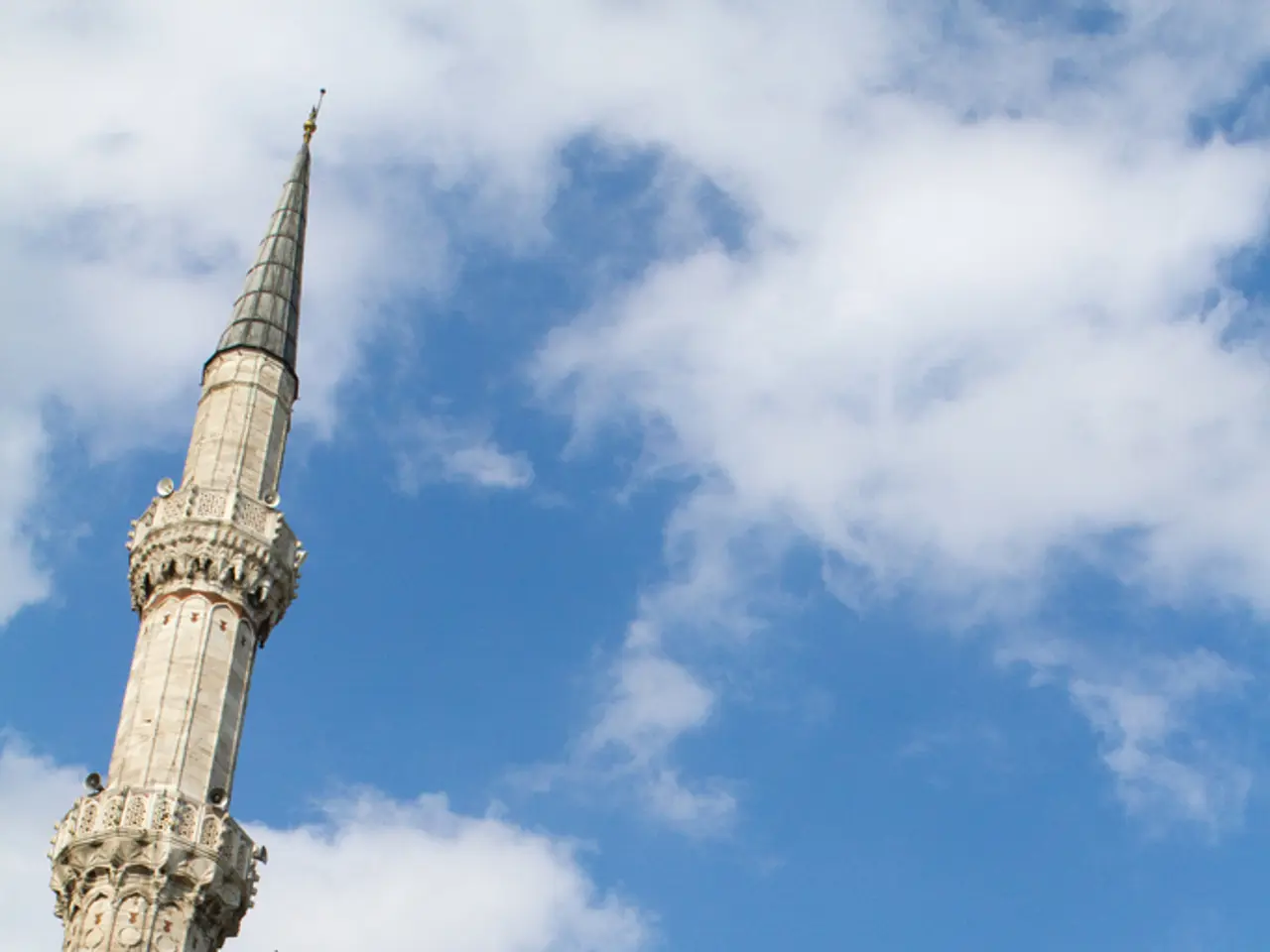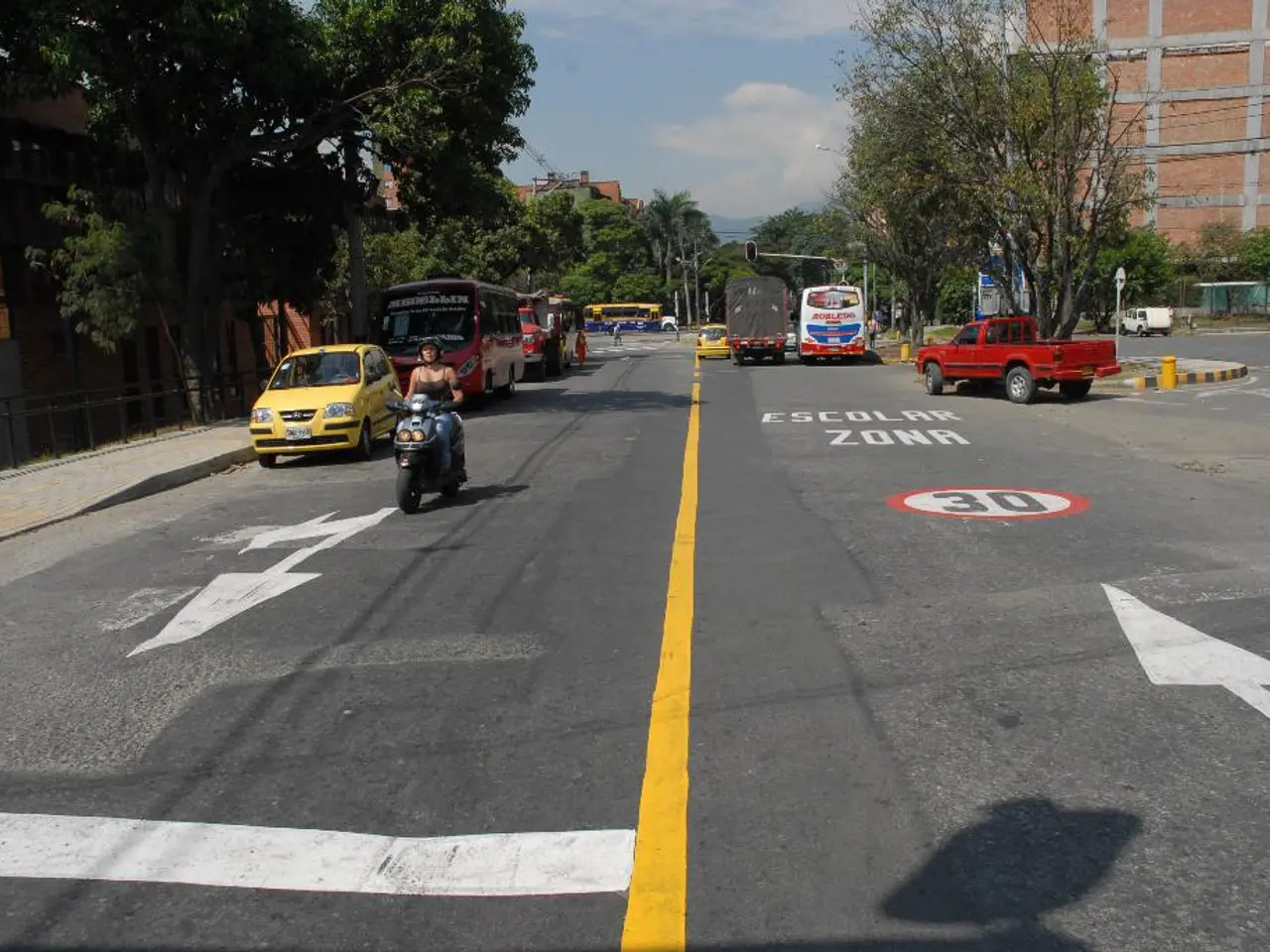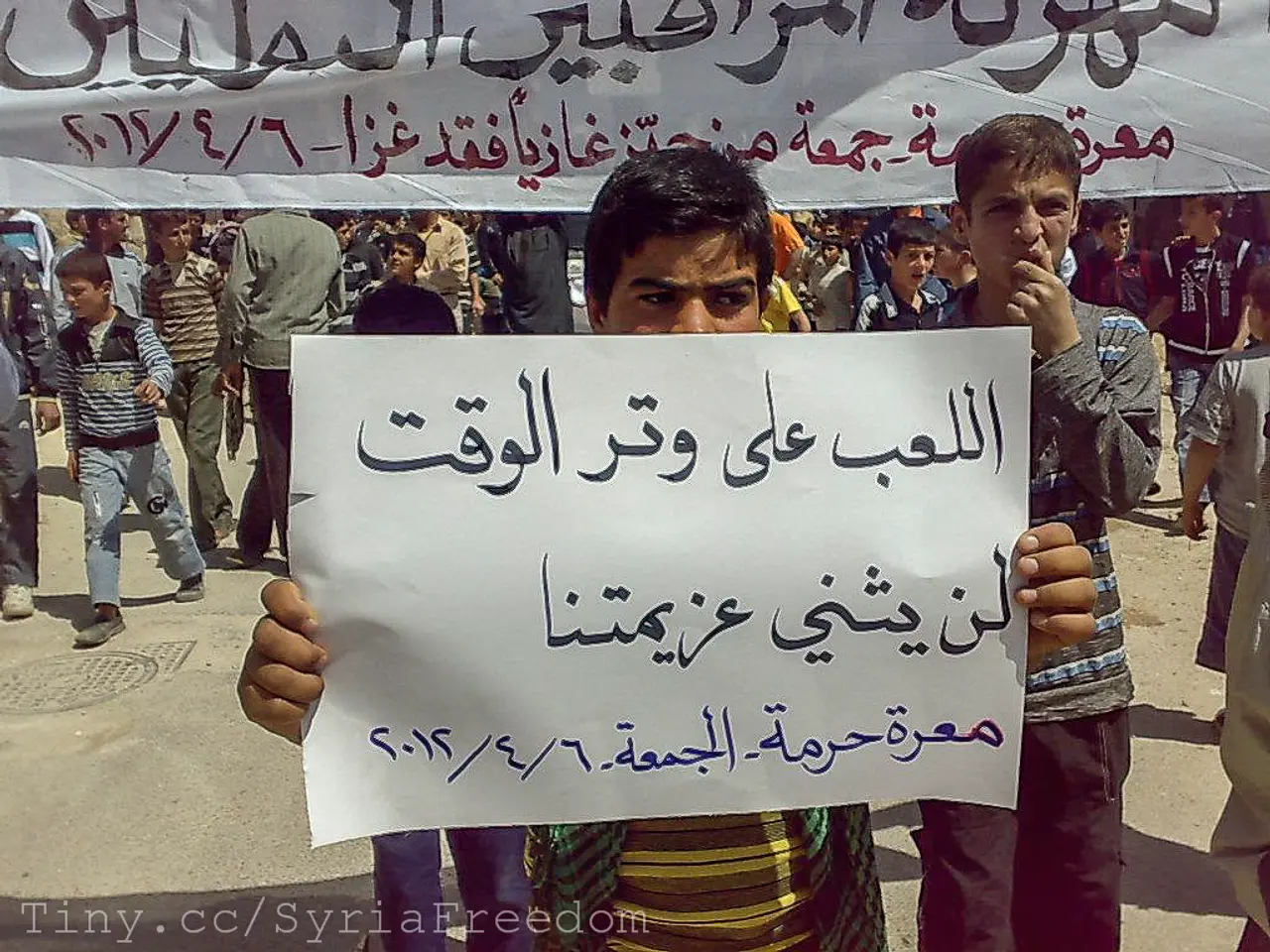Turkey denounces Jewish worship at Al-Aqsa sanctuary
In a significant turn of events, Israel's National Security Minister, Itamar Ben-Gvir, led a prayer at the Al-Aqsa Mosque compound in Jerusalem on August 3, 2025, sparking widespread condemnation and outrage across the Middle East and beyond. The prayer, which took place at Islam's third-holiest site and Judaism's holiest place, known as the Temple Mount, defied the longstanding 1967 status quo which prohibits non-Muslim prayer there[1][2][3].
Key international reactions include:
- Jordan and Saudi Arabia condemned the act as a provocative violation of religious and political agreements governing the site, warning it risks escalating violence in the region[1]. The Jordanian-run Jerusalem Waqf and Al-Aqsa Mosque Affairs Department, which is the sole legal authority responsible for managing the site and organizing access to it, also denounced the intrusion as a flagrant violation of international law and international humanitarian law[1].
- The Waqf Foundation, which administers the mosque, reported an unprecedented number of settler incursions and overt Jewish religious displays, underscoring concern that these acts erode historic arrangements[1].
- Regional media and nations expressed outrage, seeing Ben-Gvir’s defiance and the Israeli police's relaxed enforcement under his influence as destabilizing and dangerous[2][3]. There is widespread fear that these provocations could trigger renewed violence like the 2021 Hamas-Israel war, especially given the volatile situation around Gaza[1].
Meanwhile, Israeli Prime Minister Netanyahu insists the status quo remains intact, but Ben-Gvir’s control over the police has enabled expansion of Jewish prayer activities on the site, signaling a significant policy shift[1][4].
The Organization for Islamic Cooperation (OIC) and Arab countries strongly condemned the repeated Israeli provocations at the Al-Aqsa Mosque compound[1]. Hamas decried Ben-Gvir's intrusion as a criminal act posing a direct threat to both regional and international peace and security, while Riyadh reiterated its demand for the international community to stop the practices of Israeli occupation officials[1].
In summary, Ben-Gvir’s prayer at Al-Aqsa is widely viewed by the international community, particularly Middle Eastern states, as a deliberate provocation against the delicate religious and political balance at Jerusalem’s most sensitive site, risking further regional conflict escalation[1][2][3]. The Turkish Foreign Ministry emphasized that safeguarding the sanctity of Al-Aqsa Mosque and preserving the sacred character of Jerusalem is a priority responsibility for "the collective conscience of humanity."[2] The city of Ankara has also criticized Ben-Gvir's actions, adding to the chorus of international condemnation.
[1] https://www.reuters.com/world/middle-east/israels-ben-gvir-leads-thousands-jewish-settlers-prayer-al-aqsa-mosque-2025-08-03/ [2] https://www.aa.com.tr/en/middle-east/turkey-condemns-israeli-minister-s-al-aqsa-mosque-visit/2521092 [3] https://www.aljazeera.com/news/2025/8/3/israeli-minister-ben-gvir-leads-prayer-at-al-aqsa-mosque [4] https://www.timesofisrael.com/netanyahu-says-status-quo-remains-intact-after-ben-gvir-prayer-at-al-aqsa/
- The peace and security of the Middle East and beyond are under threat due to the political ramifications of the escalating war-and-conflicts, as evidenced by the widespread outrage over the prayer led by Israel's National Security Minister Itamar Ben-Gvir at the Al-Aqsa Mosque compound in Jerusalem, which risks further escalation of regional conflicts.
- The intrusion of Israeli National Security Minister Itamar Ben-Gvir at the Al-Aqsa Mosque compound, a site significant to both Islam and Judaism, has sparked intense international scrutiny and condemnation, with numerous governments, organizations, and media outlets denouncing it as a violation of political and religious agreements that govern the site, and as potentially dangerous and destabilizing politics.






